REVIEW: Virgin Labfest 18’s ‘YOLO’ and ‘Muwang’ weave a tapestry of violence
When viewed collectively, Set C: YOLO and Set D: Muwang of the 2023 Virgin Labfest create a tapestry of violence manifesting in many forms, whether grand or quotidian, as they attempt to bridge gaps between past and present.
Each play chronicles how one should deal with acceptance amidst contradictions, from internal to external, as the characters find themselves in situations where they have to decide to either look the other way or wholeheartedly confront the inevitable.
Mga Halimaw Rin Kami (written by Jules Pamisa, directed by Tat Soriano)
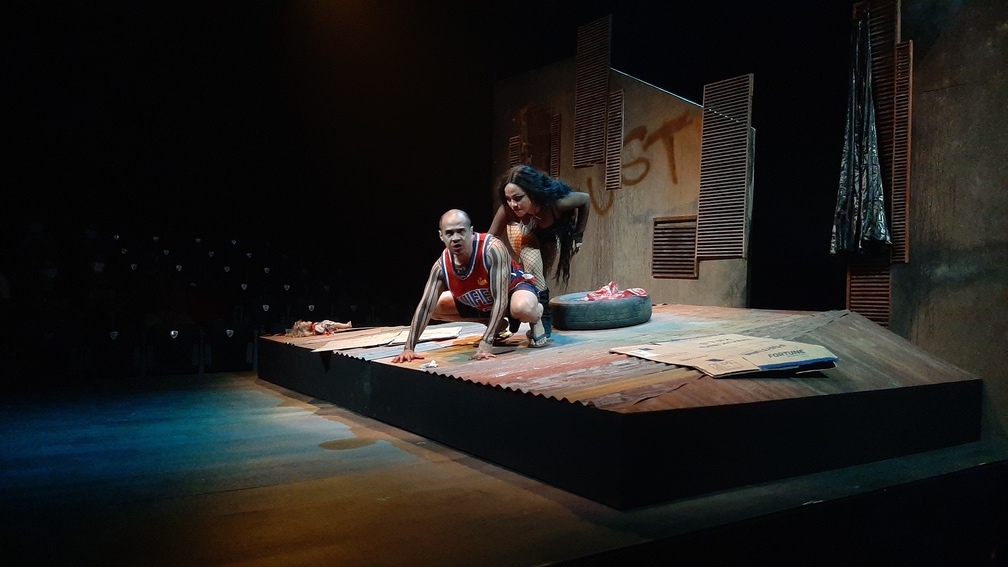
Mga Halimaw Rin Kami sees an aswang (Chrome Cosio) and a manananggal (Skyzx Labastilla) meeting at a rooftop they frequent. Enhanced by the bewitching atmosphere created by David Esguerra’s set design and Roman Cruz’s lights, writer Jules Pamisa shows how Filipino folklore remains an effective language to comment on material and political issues that are easily buried under these volatile times—borrowing details from Duterte’s drug war, uprooting historical genocides, and dissecting the fine line between action and inaction.
What’s admirable in the play is how its brevity doesn’t compromise its insight, well aware not to overstretch itself to the point of tedium. Alternating from Bisaya to Filipino to English, best captured by the excellent work delivered by Labastilla, also magnifies the material’s sensibility.
All of this culminates in a chilling endnote, alluding to the murder of Kian delos Santos at the hands of the police, amidst the patterns of impunity. This final image shows us the value and limits of fiction, of art. Yet it also invites us to confront these monsters before they become too powerful, just as the manananggal spreads her wings and rightfully avenges the brutality she has witnessed.
Room 209 (written by Zheg Arban, directed by Delphine Buencamino)
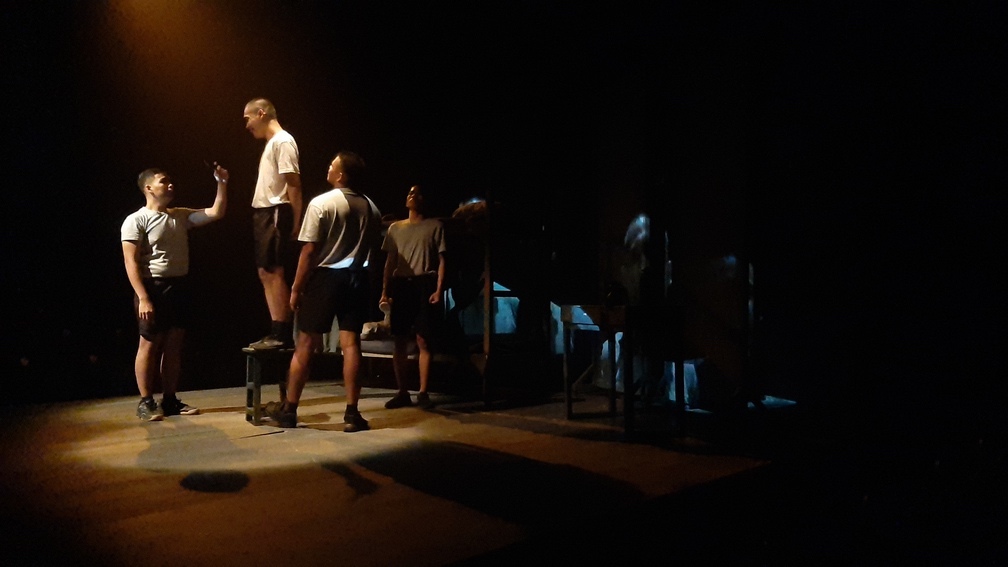
Chronicling the story of PMA cadet Anghelo Perez (Jao Catarus), Zheg Arban’s Room 209 takes a stab at the brutalities that have become synonymous with the existence of the national military academy, and how futile the institution has become.
Director Delphine Buencamino shapes this vision by taking advantage of the space and physicalizing each scene, as the characters are often placed in situations that test their endurance through various military obstacle courses. One sees them perpetually crawling, marching, and running across the stage, enlivened by Jose Buencamino’s sound work and Roman Cruz’s lighting design. The play also makes use of screens and video projections, most effective in emotional moments.
These artistic decisions are initially interesting, until the material begins to repeat itself and, in the process, dilute the strength of its message. The play could have done without some characters doubling as narrators, who tend to over-explain even the supposed subtext of a scene. The ending, although well-meaning, can also feel too didactic. What is more betraying in terms of its conclusion and, by extension, insight is how the actors portraying the perpetrators also double as the victims. Maybe with more time and fine-tuning, the play would have achieved the result it was gunning for.
Hukay (written by Ophalain Margaux Serrano, directed by Melvin Lee)
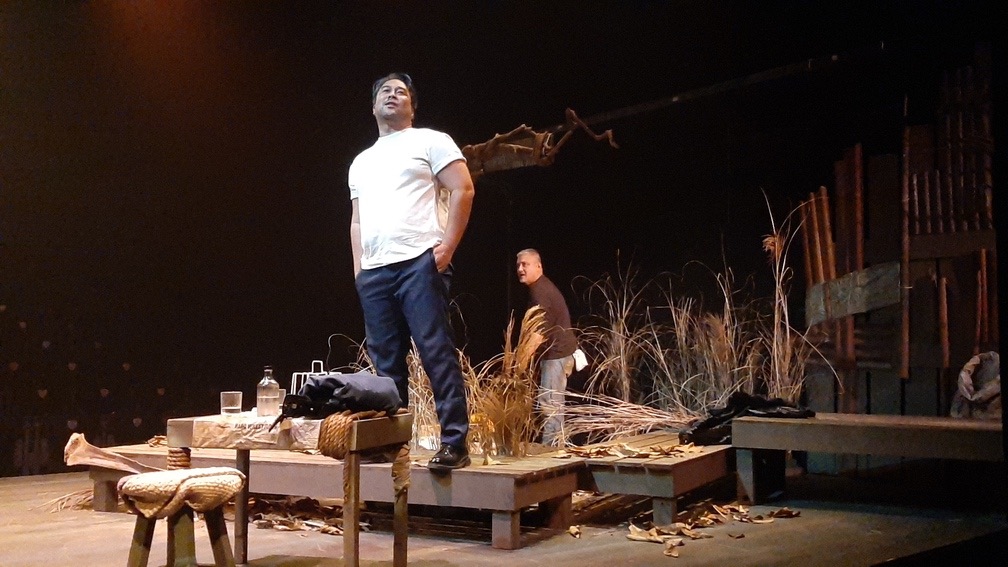
Like Jules Pamisa’s Mga Halimaw Rin Kami, its brief runtime doesn’t hinder Hukay to convey a lucid insight. The play unearths an unrequited love between Noel (Andoy Ranay) and Rico (Floyd Tena), who’ve been friends for 30 years, as they dig a grave for their dead horse. David Esguerra and Jem Bravo’s set design, in its brown and soiled tone, from the wooden tables and chairs to the dried leaves and dead grass that litter the stage—illuminated by Roman Cruz’s lights—hints at this past that the characters must mine.
Writer Ophalain Serrano frames the narrative through a queer lens, incorporating details, such as the acceptance of a trans daughter and hate crimes against the LGBTQIA+ community, and dissecting what could be seen as a late coming of age of its characters. Ranay and Tena, despite the earnestness of the subject, bring a certain lightness to the material without ever diluting their truth. They are at their best when they let their guard down and invoke this tenderness to parse the nuances in the material, which peaks at an emotional kiss they share and eventually leads to a rewarding finish, as the characters finally let go of their baggage.
Yet one cannot help but wish that Serrano exhumes deeper the complexities of Rico’s implied queerness and him being a policeman, given the role the police, as an institution, has played against the oppression of queer and trans lives.
O’Donnell (written by Jerry O’Hara, directed by Issa Manalo Lopez)
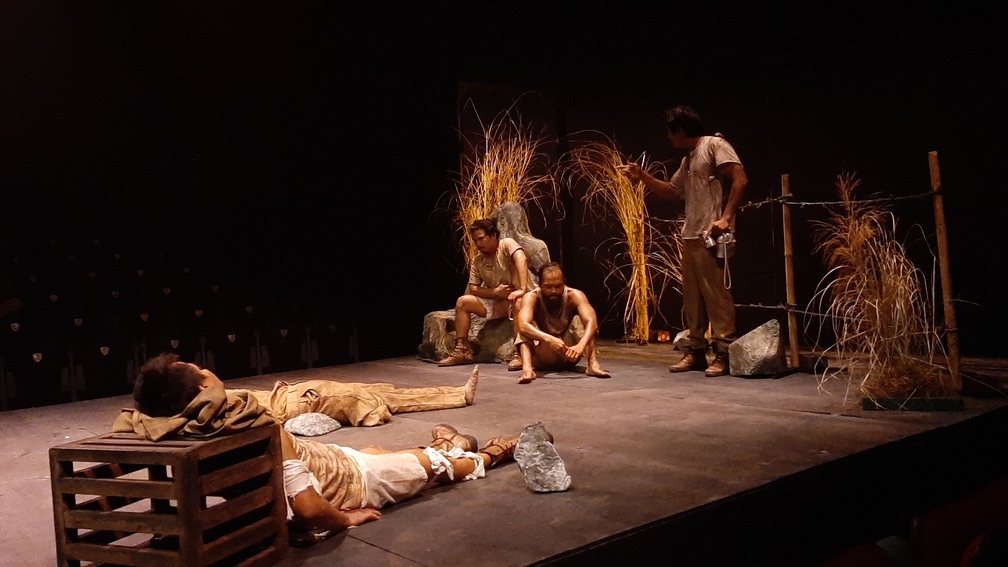
Trapped in Camp O’Donnell, a military prison camp in Tarlac during the Second World War, a group of soldiers desperately try to keep themselves afloat, while enduring hunger and countless diseases that slowly gnaw at them. Writer Jerry O’Hara and director Issa Lopez craft this harrowing spectacle—replete with sweat, blood, and sh*t—to interrogate how colonial forces reduce these prisoners of war to nothing but pawns in a chess match they are never going to win.
The ensemble (led by the magnificent Eshei Mesina, whose Isleta becomes the anchor that holds everything and everyone together) delivers a solid work that peels away each character’s nuances amidst their precarious state, until the bodies pile up, until reason escapes them.
While the period piece, at times, feels a little too long, if not indulgent, what towers over this is the sensitivity that Lopez extends to the characters, depicting how dehumanizing the whole thing is for them but not allowing them to be solely defined by their suffering. In the end, O’Donnell leaves a searing statement about how wars, motivated by imperial and colonial instincts, can only ever lead to nothing but losses, to so many forms of shattering.
Ang Tuyom (written by Marjay Manalastas, directed by Gio Potes)
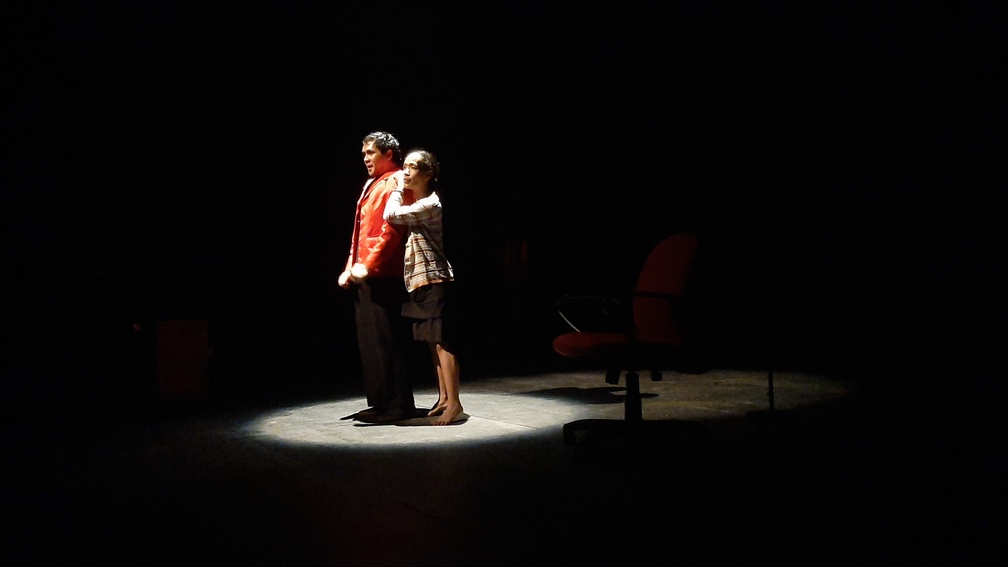
Throughout its staging, Marjay Manalastas’ Ang Tuyom tests our patience and attention like a mad scientist by taking us into never-ending mirrors and portals, as if we are entering the consciousness of its central character.
We are introduced to M, who perpetually tears open the fractures and fissures left in his heart, the trauma created by his own mother. And he confronts this by staging a play, a coping mechanism that eventually creates a piece that combines monologue, poetry, improv, literary passages, and whatnot in a looping operation, a piece that unrelentingly stretches itself, hence the runtime.
It’s not an overstatement to say that, out of all the plays in this year’s Virgin Labfest, Ang Tuyom is the most visually arresting (thanks in large part to Carlo Pagunaling’s set design, J Laspuña’s sound work, and Roman Cruz’s lights) and as formally inventive as Juan Ekis’ Nay, May Dala Akong Pancit.
To mount a work as demanding as this, of course, requires a healthy and collaborative environment, and the ensemble work of Jude Matthew Servilla, Zöe De Ocampo, Opaline Santos, Serena Magiliw, and Fred Layno proves this with sheer force and tenacity, enlivened by the glass-cutting direction of Gio Potes.
Servilla in the lead role charges at us like ocean waves, mastering every nuance and dimension of his character, challenging his work time and time again, and displaying an acting arsenal that is simply difficult to replicate. His M remains with us, so immense and heavy that it’s almost crippling.
And while we can argue that Ang Tuyom is “conceptual,” what it conveys, at its core, is hardly abstract. So when we arrive at the final image, we begin to realize that it’s simply all about the weight we have long been carrying, the grief that we may never be able to name. We look at M, understanding, with searing lucidity, that all he needs is someone who is willing to listen, and so, like a dear friend, we listen. Because we know how it feels.
Hawaii, Here We Come! (written by Shenn Apilado, directed by Mark Mirando)
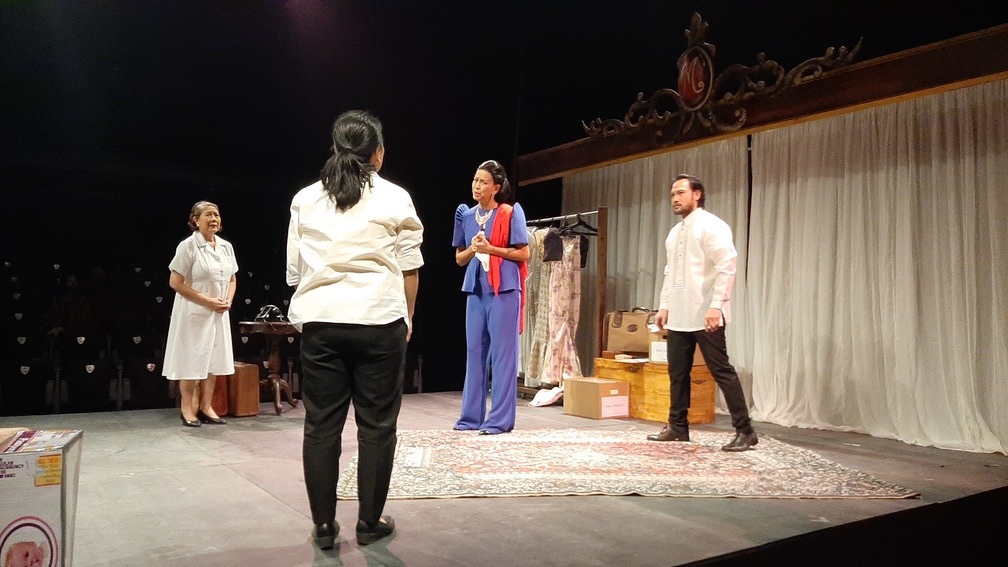
Contrary to its title, Hawaii, Here We Come! is not the fun, relaxing getaway one expects it to be. There are no coconut trees and campfires by the beach here, only two siblings and housemaids, Shirley (Madeleine Nicolas) and Angge (Sheryll Villamor Ceasico), hastily preparing for the sudden departure of their Madam (Gem Padilla-Thomas) to Hawaii—creating a snapshot of the final hours of the Marcoses in Malacañang at the height of the 1986 EDSA People Power Revolution.
Writer Shenn Apilado, in collaboration with director Mark Mirando, looks into the human rights violations under the Marcos regime rendered through the ideological contrast between Shirley and Angge, and, of course, the Imeldific touches in the work.
Towards the end, however, Hawaii, Here We Come! feels too shortsighted and barely comes up with new insights. If anything, it ends before it even begins to take shape. It’s an interrogation that arrives at expected answers, instead of asking more questions, more provocation to ponder over.


